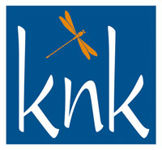My more shameful, moronic web habits cluster around arrested-teen me: videos of mixed martial artists hitting each other in the face, young Americans skateboarding unwisely down long, Californian roads and members of heavy metal groups talking about how they wrote that song about that serial killer.
That’s why save-it-for-later app Pocket is my new favourite thing. Pocket is the app for the better me, the avocado-eating, art gallery-visiting me, I try to project through Twitter and Instagram. Ostensibly, it’s a simple tool that saves stuff from the web for enjoying later but in reality it’s all about the long-reads. Obviously, I could save the skating / metal / punching video too, but why bother? They’re short and there’s always another one, and another one…
Pocket is for The Atlantic and New Yorker magazine pieces you not only read but you tell other people to read, so they know you are the kind of person who reads that sort of thing. The type of pieces that involve journalists boarding trains or driving cars and meeting people. The kinds of pieces that require attention, thought and a train cancellation. The kinds of pieces that are A Good Thing.
This is how the process works… you see that five thousand word social history of the Oreo on your social feed and think, “Obviously I can’t sit down right now and read all this clever writing, I’m a busy executive. I have meetings and decisions to make. I will save it using the Pocket app. Later, during a break, maybe while eating some avocados, I will read this and absorb its challenging ideas.” Once saved, it’s accessible on all your devices - even if you have no phone signal.
Knowing your Oreo piece is saved, along with the New Yorker thing on the early career of Charlie Chaplin and the Atlantic article on the man who transformed seat belts, you are free to watch a video of an American skate-jumping a bench in an LA car park.
Pocket looks calm and informal and quietly intelligent. It’s all sans serif and bright colours – a cross between a spiffy college professor with a bow tie and a cool, electronica band.
It was created in San Francisco by Nate Weiner who looks like the internet millionaire from a Juno-style indie rom-com, and has 22 million users around world.
The best part is the way it learns what you like (or what you’d like to like, or what you think people like you ought to like) and recommends more material along those lines. Currently, it is suggesting I read a piece from the New York Times on an ice cream van turf war and Sheryl Sandberg’s speech to the University of California – in other words, it’s always reminding me and encouraging me to be avocado guy, not skate guy. It’s not like the apps which beckon me into dark corners, knowing my weaknesses, knowing all that undemanding video I clicked on lazily, when I was tired, really just out of curiosity and didn’t even view to completion.
So, effectively, Pocket is the posh internet. The internet for people like us, people who like to read something long and challenging but because of time pressure, occasionally make do with a video of something about cheese strings or puppies.
Pocket is free and having used it for some weeks, it really does start to work its way into those dead periods: those moments when your train pauses in a signal free tunnel and you HAVE to look at your phone in case the person opposite breaks the no-talking-it’s-a-city rule. It’s there to protect you from looking at your unrefreshed Instagram account again, from crushing candy, from plunging once more into your work email account and filling time with low-level anxiety. It will teach you and charm you and stretch you.
It allows you to follow curators; here I picture men and women sitting in the quadrangles of Harvard and Oxford under ancient trees smiling and frowning as they read and read, never even slightly tempted by a link that says “Awesome Knockout!!!”. And, obviously, you can build your own profile too. You can project a limitlessly thoughtful image of yourself. Like article deejaying, you can have people see all the clever things you’ve been reading and understand – without you having to actually say anything – that you are a very thoughtful person, who’s concerned about complex issues and could well own a first-edition of a John Updike novel.
Do download Pocket now… in the meantime, may I direct you to Jonathan Franzen’s 10,000 word New Yorker piece about his trip to Antarctica. Or if you’re pushed for time, I can also recommend searching skater Lucien Clarke on YouTube; average duration, one-minute thirty. He grinds a handrail like no one on earth.
Pocket can be downloaded from the App Store.












